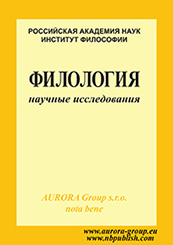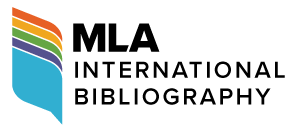Literary criticism
Reference:
Sharonova, E.A. (2025). Cosmo-Psycho-Logos of the Erzya People in the Epic "Mastorava". Philology: scientific researches, 3, 30–48. https://doi.org/10.7256/2454-0749.2025.3.73692
Abstract:
The subject of the study is the cosmo-psycho-logos of the Erzya people, expressed in "Mastorava" as a literary form of the epic. The national image of the people is encoded in the cosmo-psycho-logos. It is most fully expressed in the national epic, which contains the maximum information about the people, their mental, psychological, linguistic, cultural, geographical, and historical portrait. The national image is formed in "Mastorava" from the image of the land, the images of gods and national heroes, the reflection of the specifics of the historical existence of the people, their historical preferences and antipathies, characteristics of their historical thinking, and so on. Most importantly, it is derived from the image of national worldview encoded in the language of the people. "Mastorava" was originally written in the Erzya language, and the existence in the space of the native language is natural for the people, as it realizes the meanings that constitute their idea and image. The methodology of the study is based on the principles of domestic comparative-historical literary studies and folklore, embodied by Bakhtin, Gatchev, Sharonov, Bakhtikireeva, Arzamazov, and others. The work employs cultural-historical, mythopoetic methods, and a comprehensive analysis of the artistic work, creating a broad problematic field for research. The scientific novelty of the research lies in the fact that it is the first time the cosmo-psycho-logos of the Erzya people in the epic "Mastorava" is examined. As a result of the study, we concluded that in "Mastorava," alongside the voice of the people, the voice of its author is heard, their representation of the people interweaving into its CPL, changing the outlines created by folklore and complementing them with the uniqueness of its own CPL, which qualitatively complicates them. The sound of the voice of the people and the sound of the poet's voice hold independent value, but their fusion gives rise to polyphony, forming the objective voice of the nation. Reflections on the problem of the CPL of the Erzya people in "Mastorava" by A.M. Sharonov led to the conclusion that in the literary epic, the CPL of the people, recorded in the authentic epic, intertwines with the author's CPL and, enhancing each other's sound, creates a more complete portrait of the ethno. It is evident that the author reflects in his people just as the people reflect in the author, who is their ethnophore. The results of the study can be used in the comparative study of the folklore and literature of the peoples of Russia.
Keywords:
image of the people, A.M. Sharonov, poet ethnophore, Erzya people, Mastorava, book form of the epic, G.D. Gachev, cosmo-psycho-logos, national mentality, pantheon
 This work is licensed under a Creative Commons Attribution-NonCommercial 4.0 International License.
This work is licensed under a Creative Commons Attribution-NonCommercial 4.0 International License.
 Eng
Eng













 © 1998 – 2025 Nota Bene. Publishing Technologies. NB-Media Ltd.
© 1998 – 2025 Nota Bene. Publishing Technologies. NB-Media Ltd.




